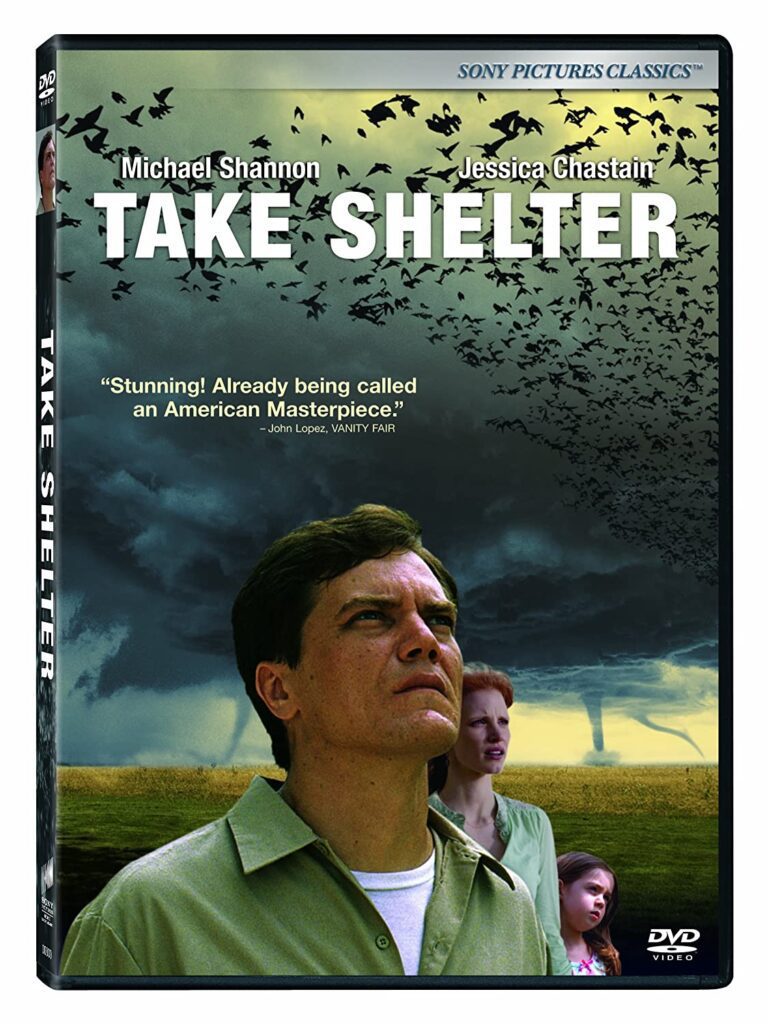
Jeff Nichols’ Take Shelter is a compelling family drama anchored by Michael Shannon’s captivating performance as Curtis, a man whose judgment regarding the safety and welfare of his family grows increasingly at odds with those around him.
Curtis dreams about an impending storm of great magnitude. Birds fly off in large numbers, and the rain is thick and viscous like motor oil. He’s concerned the dreams may be prophetic so he starts building an underground shelter in his backyard to protect his family, which includes wife Samantha (Jessica Chastain) and their daughter Hannah (Tova Stewart) who is deaf but an operation could soon change that, presuming they can pay for it.
His dreams continue and intensify. The storms increase in size and those closest to Curtis attack him. When awake, the vividness of the dreams, which leave him covered in sweat, lead Curtis to distrust his attackers, resulting in his distancing himself from the family pet, a friend, and even family members.
In an effort to control his dreams, Curtis tries to manage his sleep with the help of prescription medication, but the dreams manifest into hallucinations. Being that his mother (Kathy Baker) was institutionalized, Curtis is concerned he too might be losing his sanity, yet he can’t turn back from completing the shelter, especially when he sees glimmers that he may be right.
Though a small film, Take Shelter has great power thanks to dynamic between the married lead characters. Shannon is impressive as a man unsure of whether his sanity is slowing slipping away or if he’s the only sane person. Chastain finds the poignancy of Samantha who understandably struggles to find the strength to hold the family together as her husband changes. Nichols’ direction is understated but effective. The pacing might be too slow for some and the dealing with the daughter’s deafness, though believable, was a tad repetitive.
The ending is very well done yet it’s so subtle it may lose some viewers. Not to reveal anything but what happens can be taken two ways. Only one is a logical progression of the plot while the other comes off like an O. Henry plot twist typical of standard Hollywood fare. Nichols wouldn’t have told this story the way he did, if it was the latter.